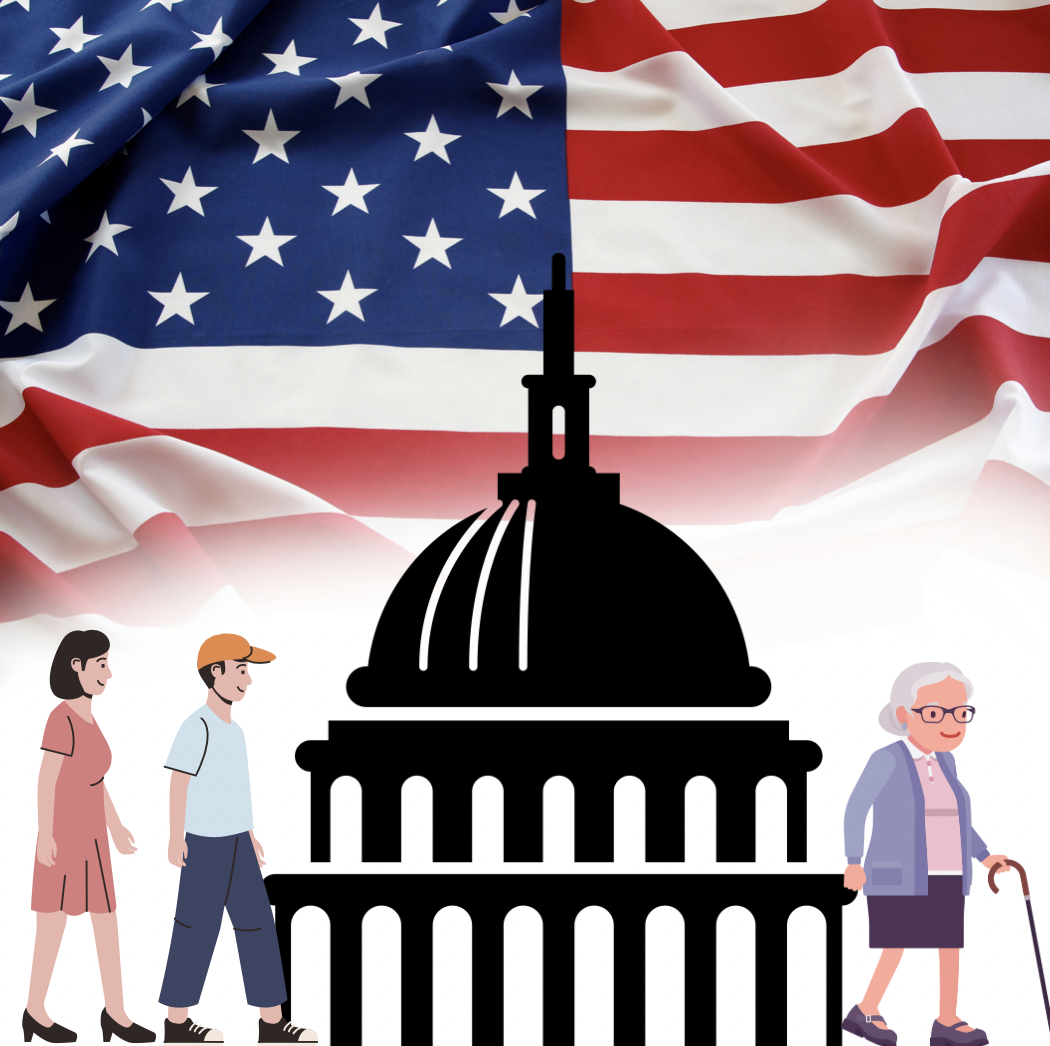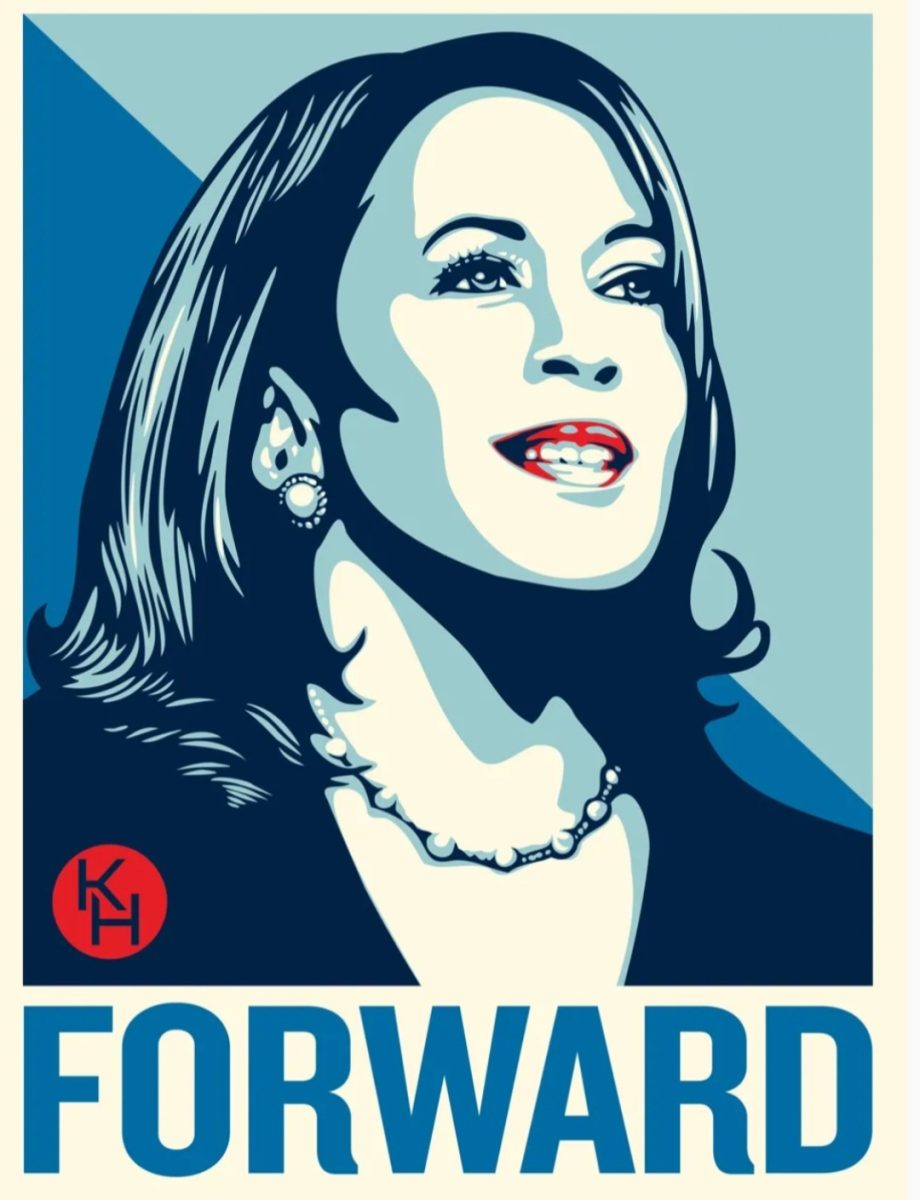For as long as I can remember, pancakes were my favorite breakfast food. I enjoyed their sweet taste, the way they would keep me full until lunch, and the endless toppings I could choose from.
Yet, this past summer, I discovered the immensely beautiful, oh-so delicious, eggs. Eggs represented something new, a salty alternative to a once constantly sweet meal. In trying eggs, it furthered my breakfast options and led to great change in my life.
Now, picture my pancakes instead of Congressmen or women serving their 20th, 30th term in the House or Senate. The eggs are new candidates, who because I never tried before, did not get the opportunity to show off their ideas and talents.
The pancakes never did anything necessarily wrong to become a runner-up breakfast option. But with ever changing taste buds, my diet must evolve. Same goes for a forever progressing country, change must exist so that our government can further itself and become the most successful it can be.
And to put it simply, without term limits, I don’t believe that will ever be achieved.
Moving forward, remember these statistics. The incumbency rates for the House in 2022 was 94.5%, and the Senate was a perfect 100%. The only thing blocking many of the 80-90 year olds in congress from re-election is those who have served for decades is illness/ or death—, or for Mitch McConell, a lasting freeze.
Let’s look at the valuable input of our founding fathers. In Federalist No. 53, an essay by James Madison in the series of essays known as The Federalist Papers, he writes “[A] few of the members of Congress will possess superior talents; will by frequent re-elections, become members of long standing; will be thoroughly masters of the public business, and perhaps not unwilling to avail themselves of those advantages”.
The knowledge and skills congressmen will amass while serving should be used to better the lives of Americans. Madison believes imposing term limits will limit progress. While it is undoubted that congressmen and women learn great policy making and debating skills that are valuable to our government over time, allowing them to be continuously re-elected could result in the repression of new.
Another issue that has arised in a divided party political system are lobbyists. With there being no term limit, lobbyists have the ability to foster long standing relationships with many House and Senate members, which could lead to unfair influence on members’ ability to pass legislation.
Lobbyists can be single acting people, companies, or interest groups that, though acting lawfully, influence actions or policies of elected officials. The most notable display of lobbying in our government was during the Gilded Age (roughly post civil war to 1904), which earned its name for being glittery on the surface yet corrupt underneath. Many politicians during this time period supported business interest in return for political support from massive companies. Though the Progressive Movement helped to curb the immense influence these big corporations had in the American government, it could never be truly stopped.
With lack of term limit in Congress, lobbyists have the ability to foster long standing relationships with many House and Senate members, which could lead to unfair influence on members’ ability to pass legislation. However, a term limit would not allow for certain interest groups or corporations to wield decades-long power over specific politicians.
With new people cycling in and out of office if there were term limits, lobbyists would have a much harder time infiltrating the policies and actions of Congress. Also, the high incumbency rates can keep out newer candidates that could bring real change to Congress, something that many citizens wish to see.
Although everyday citizens care about the argument for term limits, the issue has dug deeper. By 1995, 23 states had enacted laws limiting the amount of terms Congress members could serve. An Arkansas politician sued over his inability to run for office, and the case of U.S. term Limits v Thornton made its way to the Supreme Court. In a 5-4 decision, the court ruled that only the Constitution could determine if Congress has term limits, so therefore it is unconstitutional for the states to enact their own. Though this decision stopped the practice, almost half of all states had term limits.
Only 5 justices voted against them. In that same year, the Senate Joint Resolution 21 under 104th congress was brought to the Senate floor arguing for a two term limit in the Senate and a six term limit in the House. Eventually though, cloture (meaning debate over the bill would stop and a vote would commence) was not reached and the amendment was never voted on by the Senate due to filibuster delay.
It was then re-introduced in the House in 1997 under House Joint Resolution 2 of the 105th congress, though it ultimately failed the two-thirds required vote. However, it did win a majority vote of 217-211, proving the argument for term limit is present and relevant in the very people it would check.
To gain more insight on the matter of term limits in Congress, I interviewed former Congressman Robert Andrews. He served for New Jersey’s 1st congressional district from 1990-2014. Before he ran for office, he worked as a county official for the county government, and helped in running the community college, the prison, recycling programs, and more. He also practiced law after graduating from Cornell Law School.
He was elected in 1990, and his first vote was for if the United States should go to war against Iraq. During this vote he sat next to an older member from Florida, who shared that one of his earliest votes was for whether we should go to war too. Andrews, assuming it was for the Gulf of Tonkin Resolution in 1964, soon learned that it was whether we should enter into World War II in 1941! Needless to say, he was pretty old.
This funny coincidence led us into discussion of whether the age of his fellow members affected relationships between Congressmen and women. I asked whether divisions between older and younger members were apparent in the house, and if the division could be seen in what legislation was passed or blocked. To my surprise, Andrews said there was not a divide between the ages, but more between regions: urban, suburban, and rural. He informed me that Democrats and Republicans from suburban areas typically “saw the world somewhat similarly” and from rural areas “saw the world very similarly”.
I then asked whether he saw older members less likely to pass more modern legislation, concerning topics like LGBTQ+ rights or gun control. Once again, contradictory to what I imagined, he said that that was not the case. Infact, Andrews said “very often some of the oldest members were most passionate about changing those rules”. Instead, the differences within voting for these modern, social issues often came down to religious beliefs and simply how each member viewed the world.
My last question concerning old age in the House was whether it affected their ability to legislate as well as their younger counterparts. It’s no secret that as you age your work efficiency eventually declines, and I was curious if it was apparent in the House. Andrews said the only real difference between younger and older members was their ability to combat illness. When older members got sick, it was more likely they would have to resign in order to take care of their health.
However, many of the older members were “still sharp and alert”. I then asked, point blank, whether he believed term limits should be enacted in Congress. As I expected, he doesn’t believe they should be, but for a different reason than I was thinking.
“The best term limit is competitive election”. He said that if a congressman or woman falls out of line with their constituents, the remedy to that is voters choosing someone else to represent them. He believes it should be up to the people for how long someone should serve. Sensing my counter to congressional term limits, Andrews mentioned the twenty second amendment, which limits the president to two terms.
Andrews was so adamantly against term limits themselves, he was in support of getting rid of the amendment as a whole. Similar to members of Congress, he said that if the people are in support of their president and the majority approve of them, there should be no limitations on how long they can serve.
I quickly rebutted the issue of a dictator arising from the lack of term limits, to which he answered “you can have a formal democracy but not a democracy in reality”.
If an American president begins to turn more totalitarian, Andrews explained, then the governmental institutions would have to be reworked. However, in our true democracy we have now, there should be no reason to limit someone that the country is overall supportive of.
My conversation with Andrews did change my perspective on the issue.
Though I still believe in term limits for the ability of frequently cycling new faces in and out of Congress, and therefore lessening the effects of lobbyists, I do think the candidate that the people are the fondest of should have the ability to lead.
That being said, change in America can be made outside of the government. After a certain amount of terms, abled Congressmen and women can turn their gained knowledge and skills to various other efforts, such as joining groups that work towards issues they support. Sometimes people just don’t know what they are missing out on.








